Building Resilience among Communities in the Aftermath of the Earthquake in Nepal
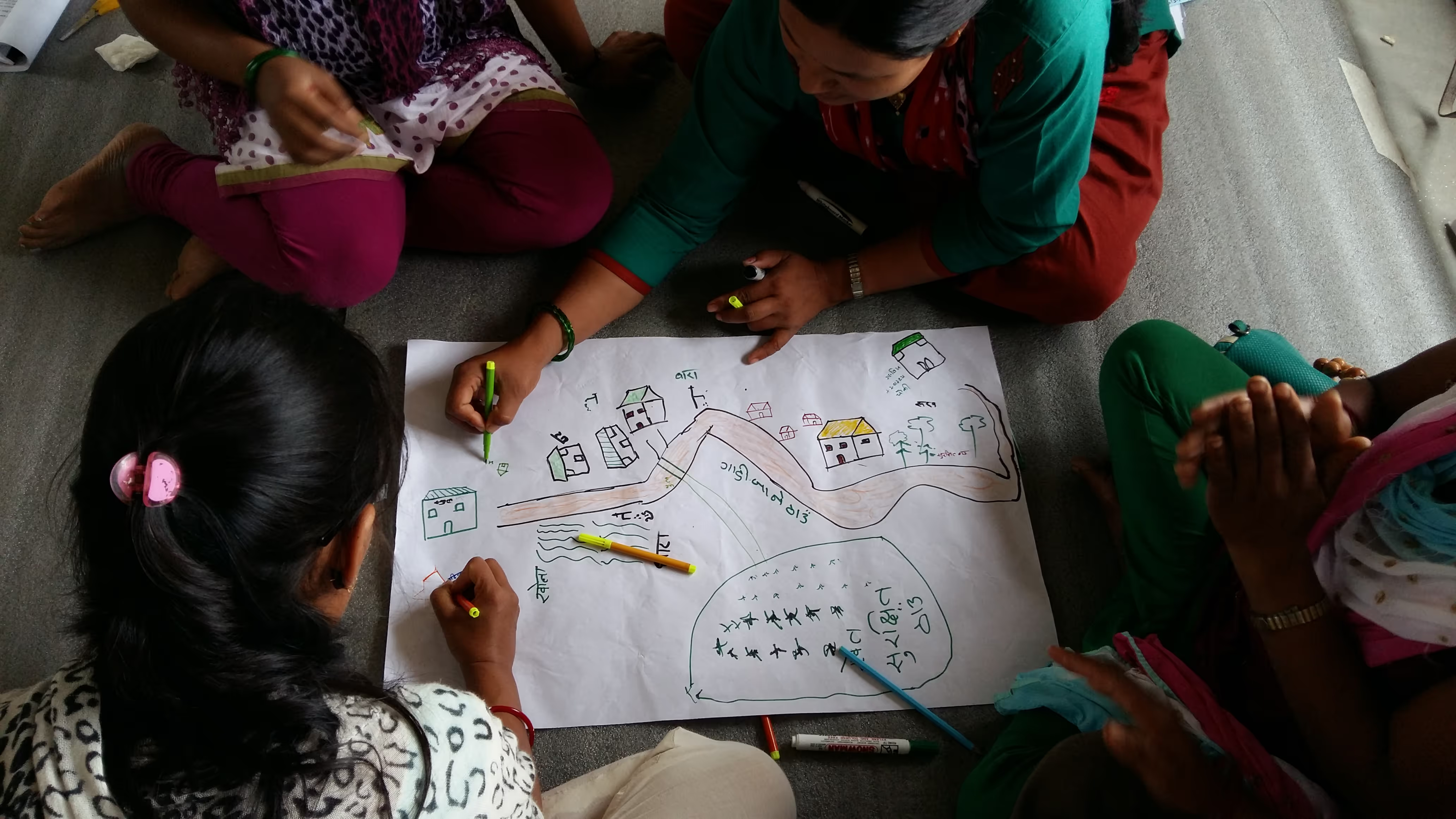
Title of Research Study: Adaptation and Evaluation of a Disaster Mental Health Intervention for Earthquake Survivors in Kathmandu Valley
Lead Agency: Natural Hazards Center, Institute of Behavioral Science, University of Colorado
Partner Organization: Transcultural Psychosocial Organization Nepal
Location: Kathmandu Valley (Bhaktapur District), Nepal
By Courtney Welton-Mitchell, co-Principle Investigator with Leah James
Early on the morning of April 25th, 2015 I awoke to a flurry of messages on my phone indicating that something was terribly wrong in Nepal. It was already evening there and many of my long-time friends were being marked ‘safe’ over Facebook. At the same time, panicked messages circulated about the missing, and the multitude of rumors about the extent of the damage throughout Kathmandu and surrounding districts were confusing and frightening. My colleague Leah and I had only just returned from Nepal a few weeks earlier. We spent most of February and March in far-western Nepal, working in collaboration with colleagues at TPO Nepal to implement a disaster mental health intervention study for flood-prone communities in Kailali district. Although we confirmed early on that all of the Kailali project team members were safe, the earthquake left over 8,000 people dead, many more injured, and nearly half a million houses destroyed throughout Nepal. We rushed to consider how we might do something useful for earthquake-affected communities in the hardest hit areas. In addition to efforts aimed at channeling financial and other resources into the immediate rescue activities, we quickly formulated a plan for how the Kailali intervention, although tailored for flood-prone communities, might be retooled to benefit earthquake survivors.
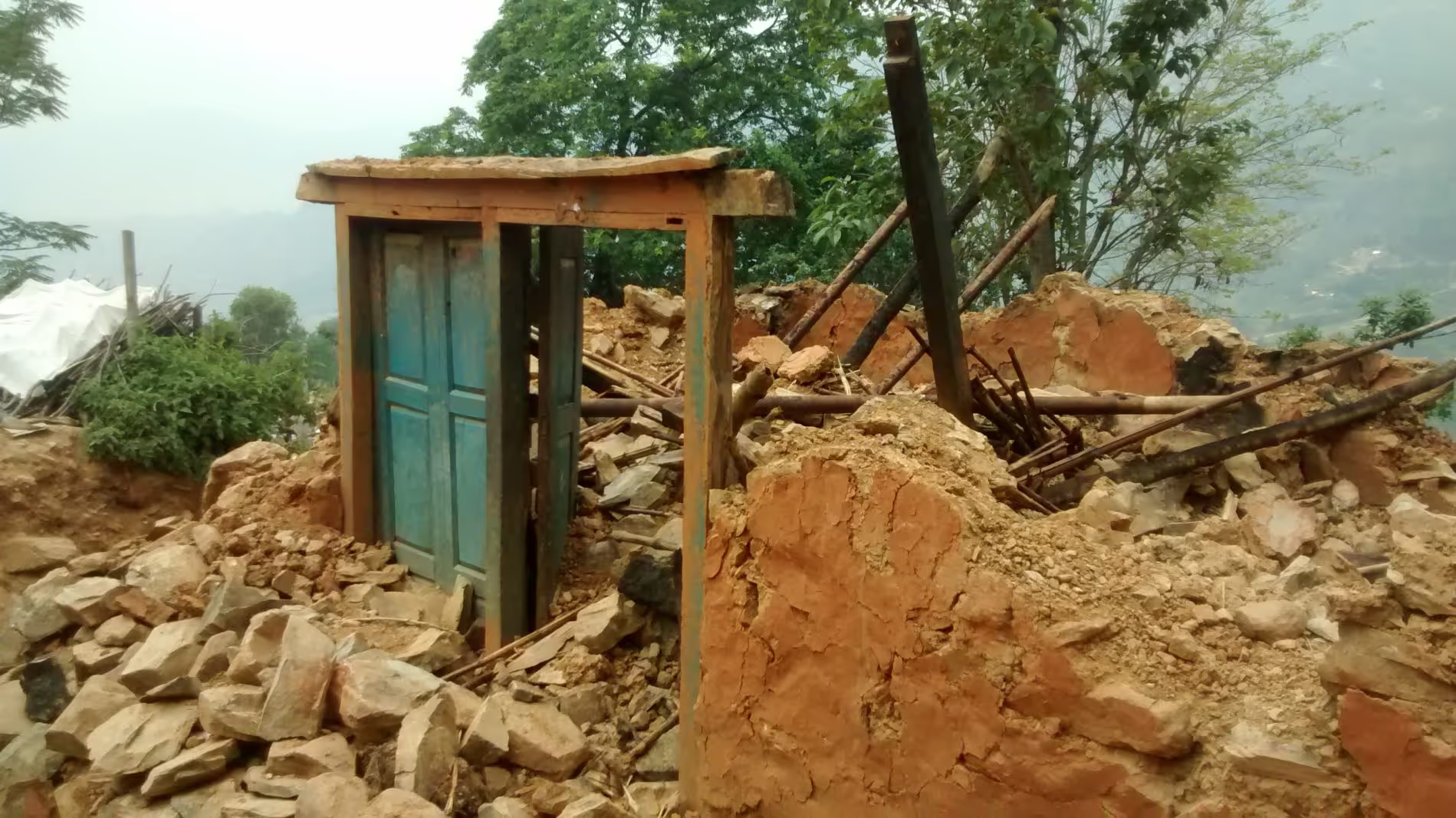
We were fortunate that our funders provided additional resources to expand the Kailali work to earthquake affected communities. Funds from the ELRHA R2HC mechanism (Research for Health in Humanitarian Crisis) are supporting implementation of a 3-day, culturally adapted, mental health integrated disaster preparedness and response training/counselling intervention for 240 persons in Bhaktapur District. Bhaktapur district suffered significant losses, especially in some of the more densely populated areas. We are working in Changunarayan and Mahamanjushree municipalities within the district, areas that local authorities have identified as the worst hit, with over 12,000 severely damaged or entirely destroyed residential structures. In order to evaluate outcomes of the intervention we are implementing a step-wise cluster comparison. Although not as rigorous as the randomized controlled trial model we are using in Kailali, the cluster comparison will allow us to both provide the intervention to everyone as soon as possible, and determine if it was effective.
The 3-day community-level group training/counselling intervention emphasizes psychoeducation about common reactions to disasters, coping skills, disaster preparedness, psychological first aid, community-building exercises, and culturally-specific components - including discussions about disaster attributions and mental health stigma in Nepali culture. The content is manualized, facilitated by Nepali clinicians/psychosocial staff, and includes exercises (e.g. breathing techniques; grounding), expressive art activities, role-plays, games, and group discussion.
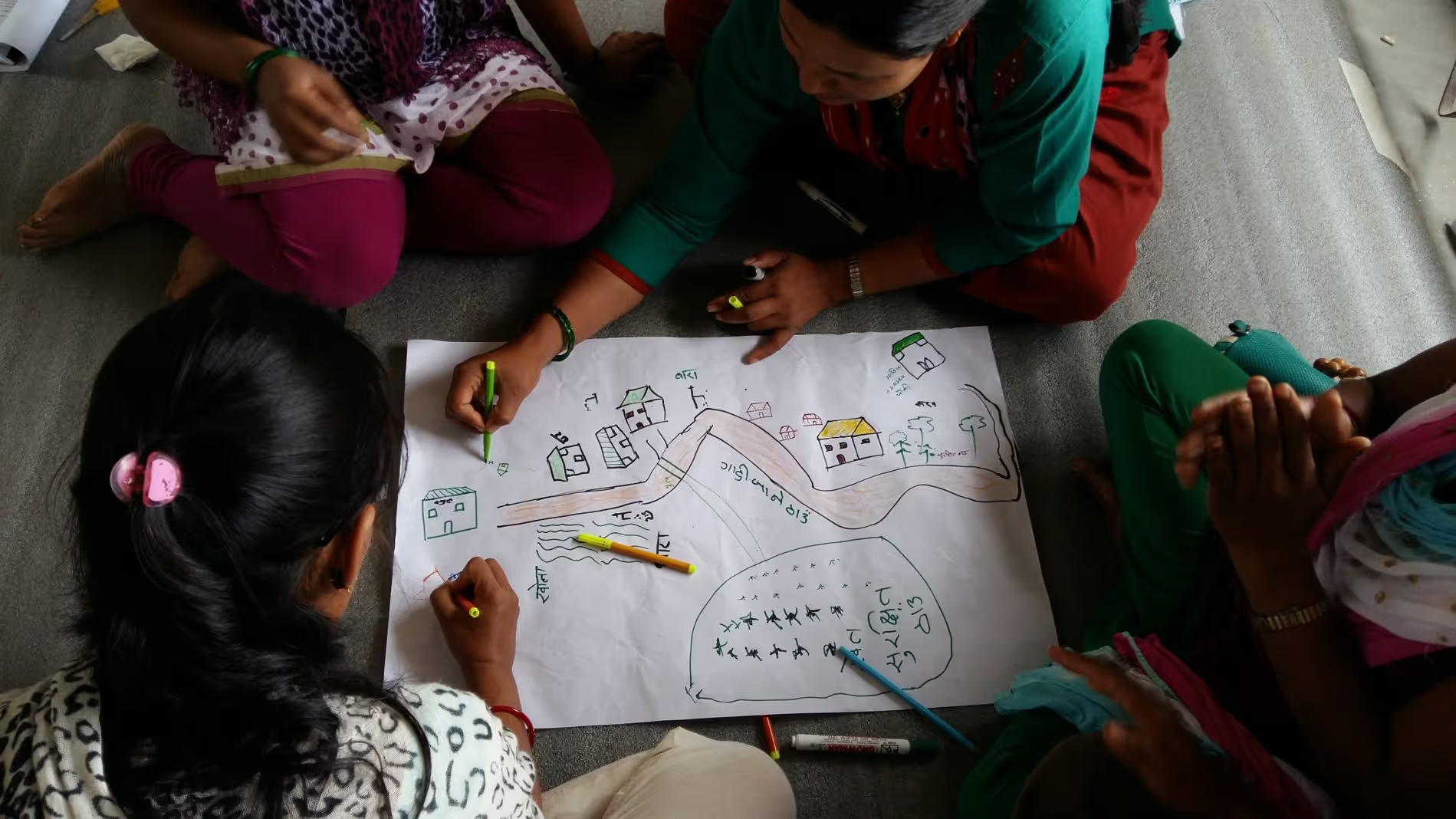
In addition to this community-based work, we are able to include an intervention training component for 60 local mental health and psychosocial service providers, earthquake victims themselves. We hope that a training in this model, paired with a self-care module, will benefit their work with earthquake victims, and their ability to manage their own earthquake-related distress. In measuring outcomes for service providers we are focusing on - compassion fatigue, job satisfaction, mental health and wellbeing.
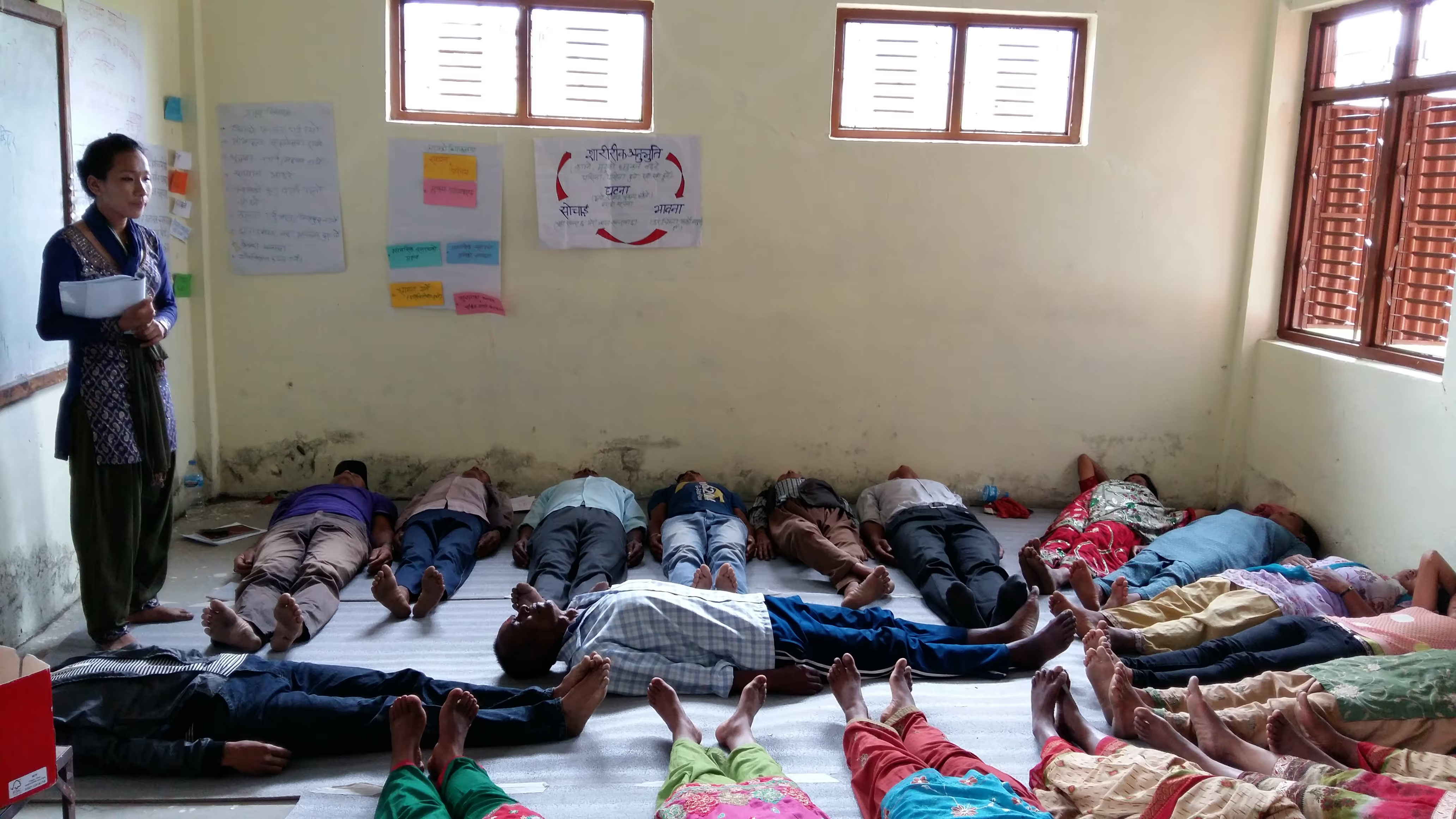
To date, together with a team of researchers, clinicians, and managers from TPO Nepal –
We have collected baseline data from 240 community members in two locations in Bhaktapur district. Following the intervention, we will collect data across two additional time points.
We have provided training in the intervention, including a self-care module, for 30 mental health and psychosocial service providers from various agencies. We will provide training for another 30 service providers in September.
We are in the midst of implementing the intervention for 240 community members. So far, we have had good attendance and engaged, enthusiastic participants. We have heard stories about families trapped for hours or days in the rubble of their homes, and about the fear and nightmares that have followed. Participants have expressed relief after sharing their experiences with the group, recognizing that they are not alone in their reactions, and receiving support from the community.
We expect to have outcome data from the intervention for earthquake-affected communities later this year, and data from the Kailali project during the first half of 2016. We recently finished implementing a similar study for disaster survivors in Haiti. While Haiti certainly represents a distinct context and culture, we are encouraged by outcomes of the intervention research there, including increased engagement in disaster preparedness, decreased mental health symptoms, and increased social cohesion, in intervention compared to control group participants. We hope to have similar results in Nepal.
I felt sick and helpless when I first heard the news of the earthquake in Nepal. Nepal has suffered so much in recent years, including the long-running civil war. Now I feel gratitude. Gratitude that we have the resources to work towards increasing resilience among disaster-affected communities in Nepal; gratitude that we work with such talented and dedicated researchers and clinical/psychosocial staff through TPO Nepal.
We look forward eagerly to the research results, and hope that the intervention will prove to be effective in increasing disaster preparedness and response, decreasing mental health and psychosocial concerns, increasing coping, increasing help-giving and help-seeking in the aftermath of natural disasters. We want to thank the communities that have welcomed the research team with open arms, and through this project we hope to be able to give something back.
Photo Credit: University of Colorado
Stay updated
Sign up for our newsletter to receive regular updates on resources, news, and insights like this. Don’t miss out on important information that can help you stay informed and engaged.
Related articles
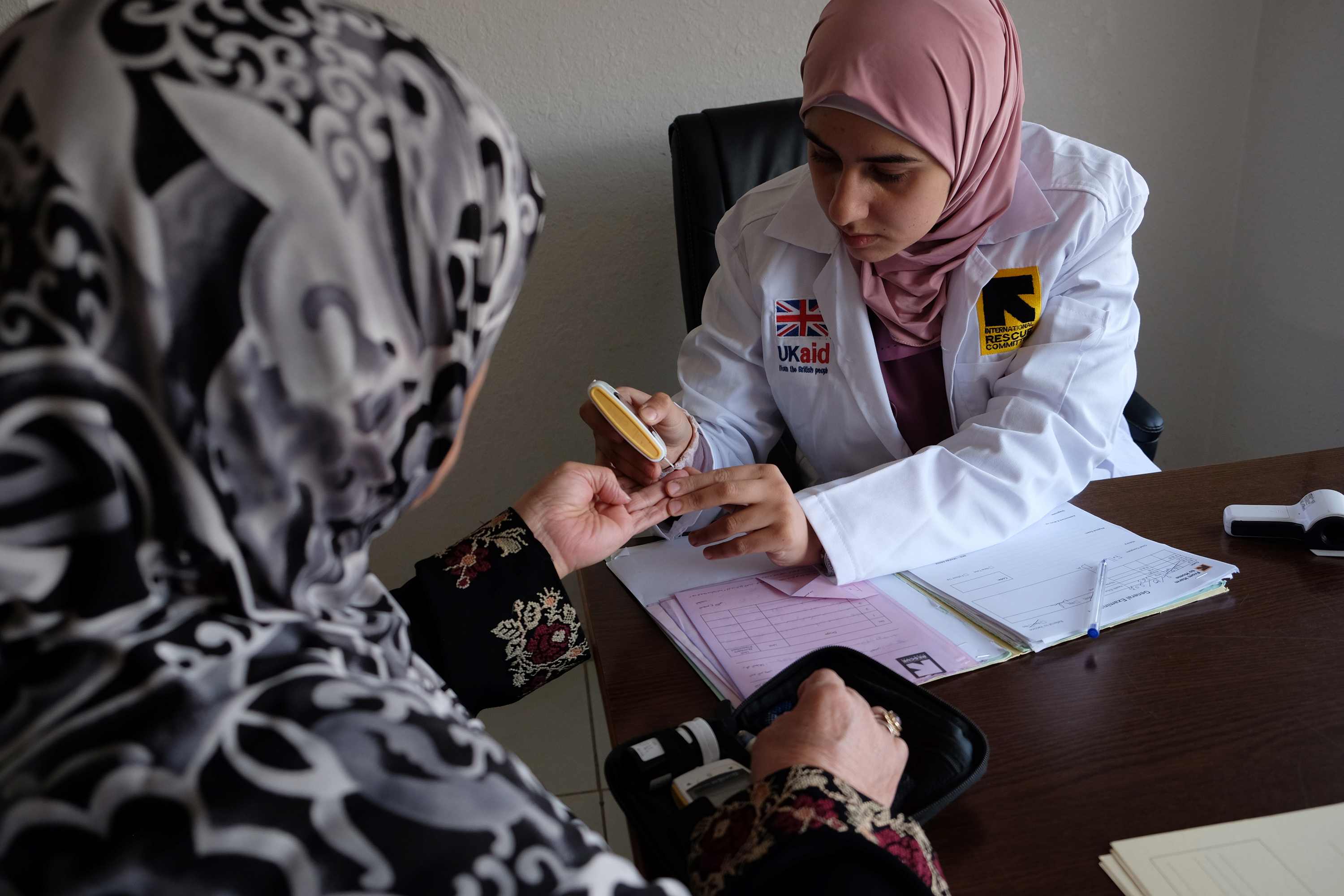
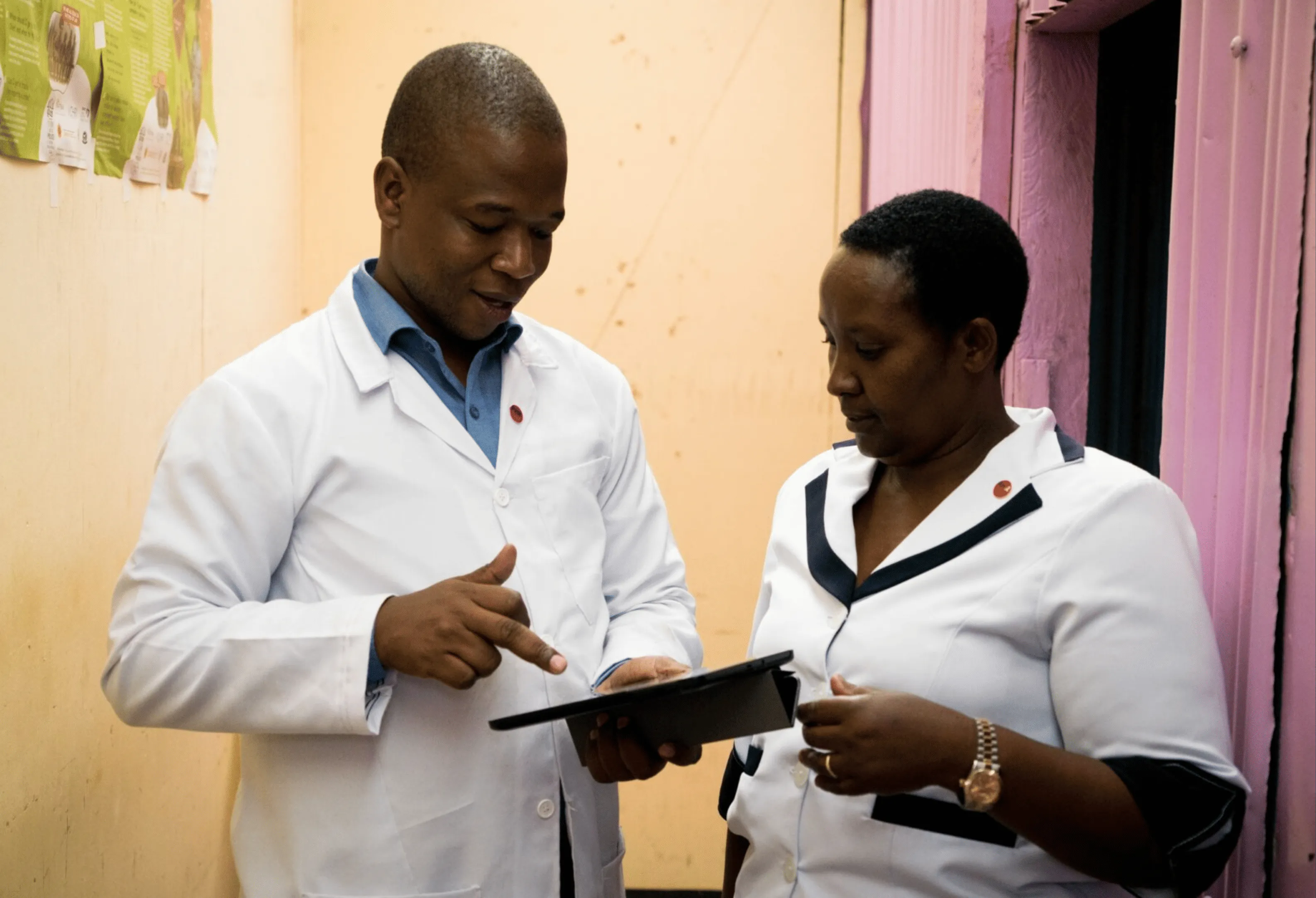
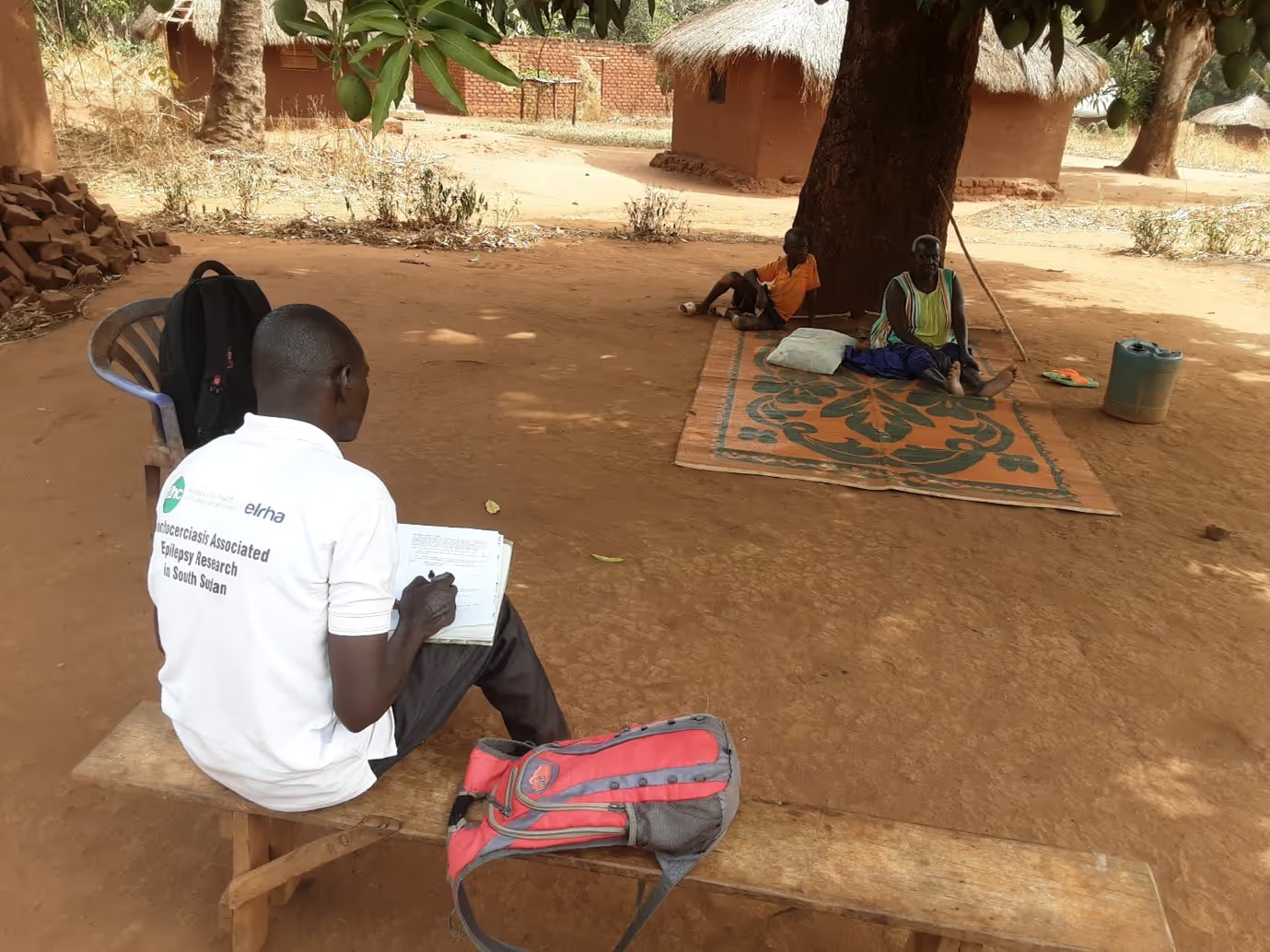
Explore Elrha
Learn more about our mission, the organisations we support, and the resources we provide to drive research and innovation in humanitarian response.